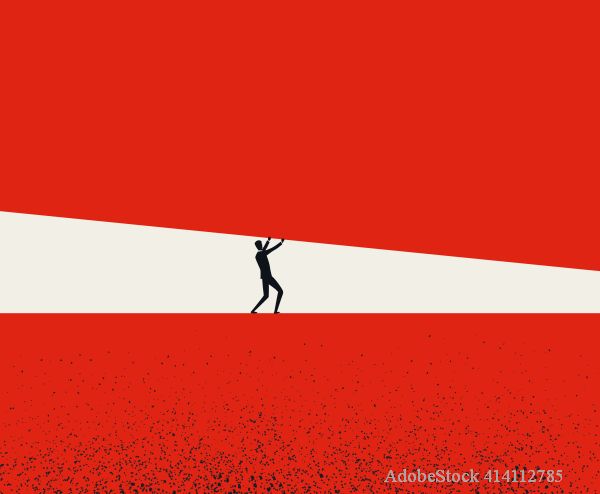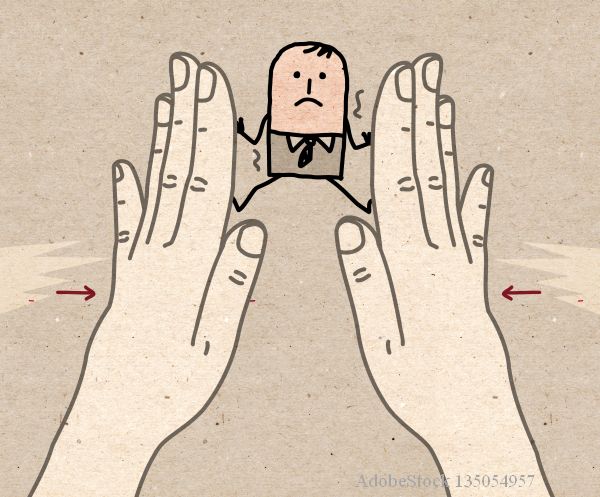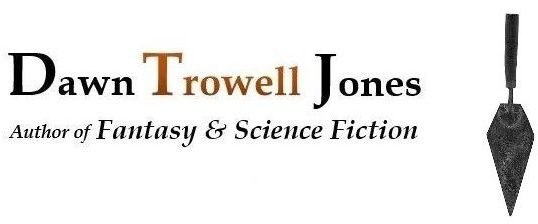 It’s all about when we notice the glass, isn’t it?
It’s all about when we notice the glass, isn’t it?
I’d written two new pieces this November for today’s post, one that was long and one that was short. The long one turned out to be too short for the topic, and the topic upset me, bogged me down, and I had to let it go. The short one was quite simply too angry, not to say my point was off-base or anything. (Okay, it was a manifesto. The working title should give you a sense of it: “Quit Calling Consistent Failure Failures – They’re Somebody’s Success Story.”)
But this is December, and I just couldn’t do it to you. I just couldn’t. Time to take a deep breath, have a little laugh at myself, and move on.
Mission accomplished. I’ve had a laugh. Would you like an update? I’ve tried not to talk too much about what’s going on in the writing sphere, but I know a few of you may be curious and maybe even slogging through the same emotional challenges.
Hang in there!
 Since the pandemic began, I’ve kept working on my stories, wrote a few new short ones this last year and edited my new novel several times over. The first of those was a rushed bad edit. (Dear authors, don’t rush your edits. Taking your time will save you time and spare you some heartache.) The last pass took three months and burned me out in almost every way imaginable, but especially emotionally – the novel is a bit intense, which is good, but you know, it was hard to live with that level of intensity for three months straight. But oh-so-gratifying to see the hard work pay off! I attended two writer conferences this year, both virtual. I pitched my novel to two agents (remotely). I admit, I’ve had a tough time sticking to my self-imposed regimen, but keeping to a schedule means a lot to me as a goal-oriented type (like GRR Martin, I suppose, I mostly like “having written”). I’m sure I’m not alone in my struggle. My secondary goal became to learn how to manage angst while being productive – and to stay positive. I figured, if I can master “grace under pressure” now, it’ll help me out down the road.
Since the pandemic began, I’ve kept working on my stories, wrote a few new short ones this last year and edited my new novel several times over. The first of those was a rushed bad edit. (Dear authors, don’t rush your edits. Taking your time will save you time and spare you some heartache.) The last pass took three months and burned me out in almost every way imaginable, but especially emotionally – the novel is a bit intense, which is good, but you know, it was hard to live with that level of intensity for three months straight. But oh-so-gratifying to see the hard work pay off! I attended two writer conferences this year, both virtual. I pitched my novel to two agents (remotely). I admit, I’ve had a tough time sticking to my self-imposed regimen, but keeping to a schedule means a lot to me as a goal-oriented type (like GRR Martin, I suppose, I mostly like “having written”). I’m sure I’m not alone in my struggle. My secondary goal became to learn how to manage angst while being productive – and to stay positive. I figured, if I can master “grace under pressure” now, it’ll help me out down the road.
And… a few days ago, I had a vision of a happening in the backstory for my next novel that surprised me (as I lay on the couch listening to music). I thought maybe I shouldn’t write the scene in, it was so disturbing, made me cringe. But then again, “disturbing” may be an excellent reason to include it, if it serves the story, for as Salman Rushdie says:
“If you want to be a serious writer, then you have to write what there is to write about. If you’re going to pull your punches and second-guess yourself and not do things because you’re worried, then don’t write. Stay home and do something else.” https://www.sfgate.com/books/article/Salman-Rushdie-never-pulls-his-punches-Novelist-2565690.php
I love that quote. Blame him when the time comes.
As for the time coming, I have sent out a respectable number of queries. The most recent went out yesterday, and now I’ll stop sending them for a while since agents sometimes get behind with their slush piles at the end of the year. Into the slush pile, by the way, is where a query goes when you don’t have a referral. A cold query. For those of you who don’t know, a “query” is like a resume cover letter for authors. The one goal of a query is to convince an agent to read the book, to receive what’s called a “full manuscript request.” Queries have a fairly strict format because agents receive a ton of them and need to be able to see quickly whether a book’s right for them. In the one-page query, the author states why the agent might be a good fit, any personal connection to the agent (some agents have assistants toss out queries that lack personalization), the title of the manuscript, its genre, and a couple of recent comparable titles (to know where the book might go on a bookstore shelf), then the blurb (think book jacket tease, 300 words or less, don’t say too much or too little), and finally a very short biographical section. I used to include a logline but was told a logline is unnecessary unless asked for. A logline, also used when pitching movies, must capture the story’s essentials in 25 words or less. Sound fun? Here’s mine for I’m Your Goat, in case you’re curious:
A quantum coder and a temple priest come together across a future desert city to trigger an evolutionary leap in the shadow of virtual rulers.
As of right now, I’m Your Goat is out on two full manuscript requests. Fingers crossed! And that’s good. I admit, that’s very good. However, a “full” is only a step along the journey. In fact, I find the query process deeply embarrassing – weird, I know, but then, as I said, it’s good to laugh at ourselves sometimes, to be willing to. I am happy. And hopeful! My beta critiquers swear the book will sell itself. That would be lovely. Even so, a lot goes into an agent’s decision whether to take a new client on, and so I have to keep going. (Why did I imagine a 28 Days Later scenario just now, a guy stumbles, pulls himself back onto his feet, drives himself onward and onward…?) Agents are absolutely inundated right now, and we’re all stressed to the hilt. When a novel is “out on a full” the agent may read it quickly or slowly. We’re talking three months to a year. Agents swear left and right that a long response time has nothing to do with the quality of a book, rather everything to do with their workload. And this was the situation before the pandemic.
I understand. In Youtube presentations, conferences, and trade publications, everywhere, agents encourage patience. I will say, the wait is tough. We’re not really supposed to talk about rejections, either, but rejection is an integral part of the process, happens to everyone, and on a positive note, it teaches us a necessary skill. Early on, a kind rejection from a prestigious boutique agency made me so happy I had to print up a copy of the email and put it in my purse, carried it everywhere. Silly and maybe superstitious, I don’t know. They shared the in-office forwarding of my query, told me they only accept one or two new clients a year, told me they were sure it was only a matter of time for me. They wanted me to know I came close. Yep. Scraps like that keep a gal going. It’s important to keep spirits up. Not always an easy thing to do.
 I shared all this today in the hopes of lightening things a bit (I’m told I’m funny in person, if you can believe it, but a tad “intense”) – and to share what it would be like if I cornered you in the hallway of my house and talked your head off after hours of isolation and quiet. To give you a glimpse of what it’s like to sit here at this desk that I’ve just cleared of sticky notes, articles, and papers from my other projects, in preparation for this new project, with my half-full cup of cold tea that I will presently heat in the microwave. Pure bliss!
I shared all this today in the hopes of lightening things a bit (I’m told I’m funny in person, if you can believe it, but a tad “intense”) – and to share what it would be like if I cornered you in the hallway of my house and talked your head off after hours of isolation and quiet. To give you a glimpse of what it’s like to sit here at this desk that I’ve just cleared of sticky notes, articles, and papers from my other projects, in preparation for this new project, with my half-full cup of cold tea that I will presently heat in the microwave. Pure bliss!
Thanks for coming, as always. I’ve enjoyed your company over the last – what, six and a half years? To those of you who keep coming back, a special thank you, to the newcomers, and to those of you just passing through on your way to somewhere else, I love all these kinds of connection. Seriously. Anyway, tempus fugit.
Please, have a wonderful Holiday and a Happy, Happy New Year! See you on the other side.
 Some articles and such I’ve run across recently that I thought might interest you:
Some articles and such I’ve run across recently that I thought might interest you:
If you’re an author struggling right now, and even if you aren’t struggling and merely a fan, here’s what Patricia Cromwell said in an interview in Anderson Cooper’s Full Circle about her recent experiences with writing and her new book Autopsy. This brightened my day. Maybe it’ll brighten yours. https://www.cnn.com/2021/02/17/us/anderson-cooper-full-circle-mobile-app/index.html
I’ve watched a lot of these, put out by Reedsy (https://reedsy.com/ ). In “Should All Writers Start with Short Stories”, Shaolin says that “ideas” for novels are different from short-story “ideas”, and that authors can face challenges switching back and forth. I’d never thought of it being an “idea” problem before, but maybe so! Very interesting. I lean more towards the novel, but I enjoy the challenges of working with short forms of storytelling. Here you go: https://youtu.be/Z_GYVarhuoo
If you re-watched David Lynch’s Dune as I did in preparation for Villeneuve’s, you may remember the light flashing in mentat Thufir Hawat’s eyes. If so, and if you’re interested in what that might have been all about (as I was), this may be the article for you! https://neurosciencenews.com/entrainment-memory-19708/
On a heavier note…. the long aborted post I mentioned at the start of this post touched on the same topic as this CNN article, which I ran across yesterday (https://www.cnn.com/2021/12/07/world/earth-black-box-climate-change/index.html ), about a special installation that records today’s reactions to climate change and what people are doing now to mitigate it – for future “civilizations” to judge and learn from. A good pairing, I think, is this short article in Psychology Today, a segment titled “Feeling Our Way.” Richard Firth-Godbehere “argues that human emotions, with all their complexities and contradictions, shaped history just as powerfully as more ‘rational’ forces like economics.” When asked, he states that any emotion can act as a motivating unifier, but the “most social of all is shame.” https://tribunecontentagency.com/article/feeling-our-way/
